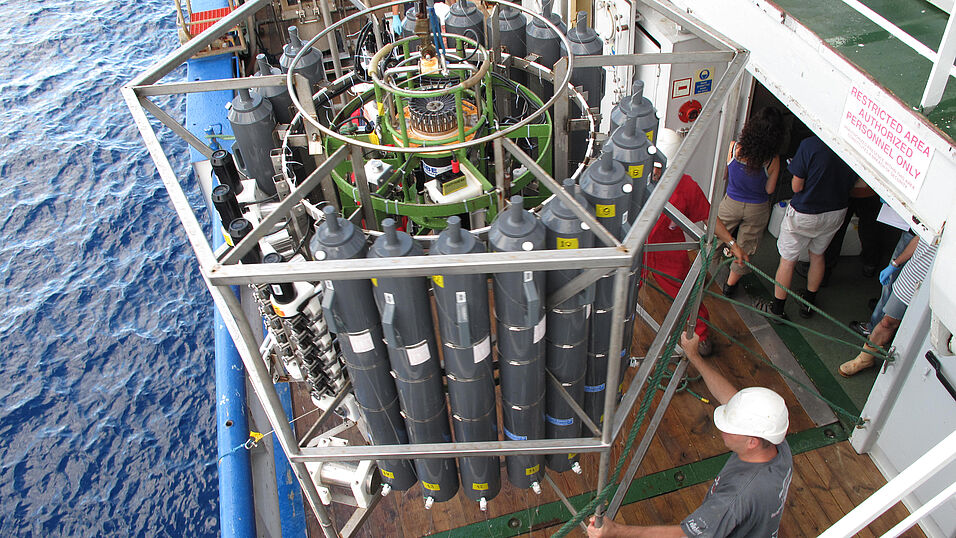The diversity of micro-organisms and their energy sources is a scientific puzzle even after decades of deep-sea research. Deep-sea nitrite-oxidizing bacteria are major players in the conversion of carbon dioxide into biomass. The results of the study are currently published in the renowned journal "Science". [read more]
"Major role of nitrite-oxidizing bacteria in the dark ocean carbon fixation": Maria G. Pachiadaki, Eva Sintes, Kristin Bergauer, Julia M. Brown, Nicholas R. Record, Brandon K. Swan, Mary Elizabeth Mathyer, Steven Hallam, Purificacion Lopez-Garcia, Yoshihiro Takaki, Takuro Nunoura, Tanja Woyke, Gerhard J. Herndl, Ramunas Stepanauskas
Science, 24 Nov 2017: Vol. 358, Issue 6366, pp. 1046-1051 DOI: 10.1126/science.aan8260

